Unifor’s History
Unifor was officially formed on August 31, 2013, at a Founding Convention in Toronto, Ontario. It marked the coming together of the Canadian Auto Workers union (CAW) and the Communications, Energy and Paperworkers Union of Canada (CEP) – two of Canada’s largest and most influential labour unions.
The birth of Unifor represented a sign of hope for the Canadian labour movement, and working people more generally.
For decades, union membership (as a share of total employment) had been in steady decline – particularly in the private sector. Running parallel to this decline in union density had been a sharp rise in income inequality, growing threats to retirement security, chronic unemployment and underemployment (particularly for young people) and a noticeable rise in insecure, precarious forms of work, especially among newcomers. The decline of union influence coincided with the rise of grossly imbalanced business-friendly policies, starting in the 1980s, that included tax cuts, labour market deregulation and corporate-led free trade deals.
Unifor was a bold answer to the question: “How do Canadian unions respond to the changing economy and these challenging times?”
Its large and diverse membership (that includes nearly every sector of the economy), makes it one of the most representative voices of our national economy. Its representative organizational structure and innovative forms of membership means it can better address regional economic and political matters on behalf of working people. Its core mandate – to be an effective union that is built by its members and deeply rooted in community – brings Unifor’s work into the day-to-day lives of Canadian families.
The Unifor project began as a discussion about union renewal in the fall of 2011 between former CAW President Ken Lewenza and former CEP President Dave Coles. Informal discussions led to formal talks among union leadership and staff. A formal discussion paper was prepared, which lead to a comprehensive, open and inclusive union revitalization project, spanning 20-months. Members were invited to follow developments of the New Union Project through regularly published reports, a frequently updated website, and were also asked to participate in telephone town hall meetings and online polls.
From its inception, Unifor has become a source of optimism and inspiration that a fairer, more secure future can be won for working people, that unions can adapt to changing times and remain a relevant voice for workplace and social justice.
When was Unifor established?
Unifor was officially formed on August 31, 2013. Established in a time of rising income inequality, declining levels of private sector union density, and aggressive corporate and government attacks on the wages and benefits of Canadian workers, Unifor is the product of an ambitious revitalization project undertaken by the former Canadian Auto Workers union (CAW) and the Communications, Energy and Paperworkers Union of Canada (CEP).
CAW and CEP leadership set a goal to form a new Canadian union, with a new structure and identity that would better represent its members, organize and empower all workers (whether in the union or not) and build a more cohesive and strategic movement of working people.
What sets Unifor apart from other unions in Canada?
Unifor is Canada’s largest private sector union, with over 300,000 members in a diverse range of sectors, across the country. Unifor is the certified collective bargaining agent for workers in thousands of workplaces, but also provides an opportunity for all workers – even those without collective bargaining rights – to hold union membership, through its innovative community chapters program.
Unifor is staffed with leading experts in the field of labour relations, economics, communications, research, pensions and benefits, labour law and adult education along with a team of strategic contract negotiators that are the best in the world.
Unifor also boasts the only union owned and operated Family Education Centre, located in beautiful Port Elgin, Ontario. The FEC houses national and international conferences, education seminars and other union-sponsored events, including Unifor’s trademark Paid Education Leave program.
